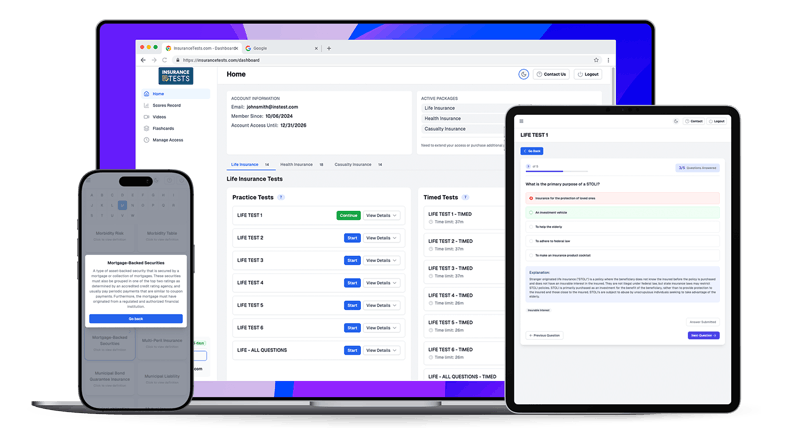Pass The Florida Health Insurance Test
Florida Health Insurance Practice Exams
Pass the Florida Health Insurance test with confidence! Don't rely on the outdated material on other Florida Health Insurance practice test sites. Our program comes with 275 Florida Health Insurance exam questions with detailed answer explanations similar to the ones you will find on the actual Florida Health Insurance exam. All of our Health Insurance tests are up to date with latest 2025 material for Florida.
Our online Florida Health Insurance test prep has helped thousands of test-takers pass their insurance exam and comes with a 100% Pass Money-Back Guarantee!

Florida - Health Insurance Free Trial
Pass The Insurance License Test
Our Insurance practice exam prep has national questions with detailed answer explanations. That’s 275 insurance practice exam questions for each insurance area, 500 questions for a paired combo and 1,000 questions for all four areas, plus every paid user gets vocabulary study flashcards with insurance terms and definitions. Our insurance practice exams are also up to date with the latest insurance regulations. Since our practice insurance tests focus on some of the most popular national insurance material, our questions apply in every state and U.S. jurisdiction.
Our insurance exam prep comes with a 100% Pass Money-Back Guarantee, and has helped countless others pass their insurance test!